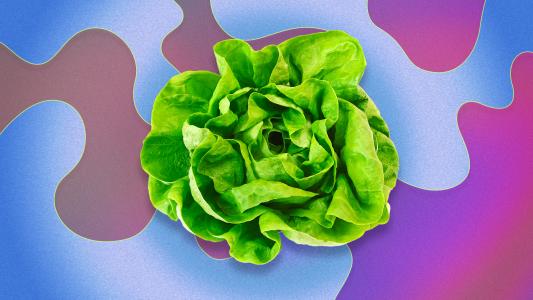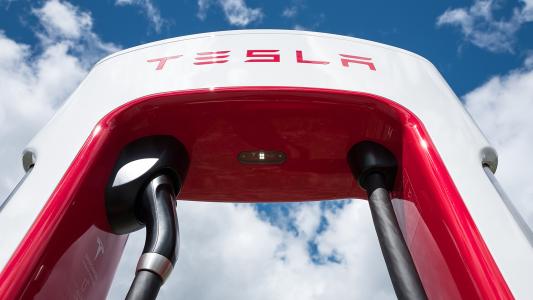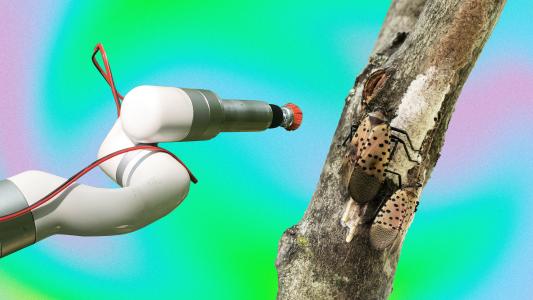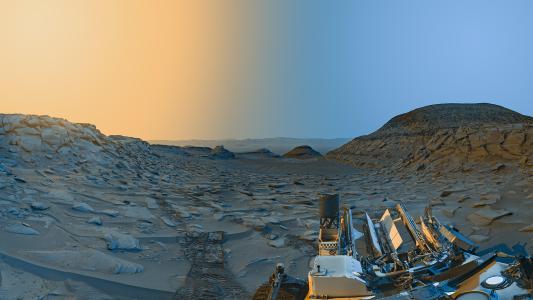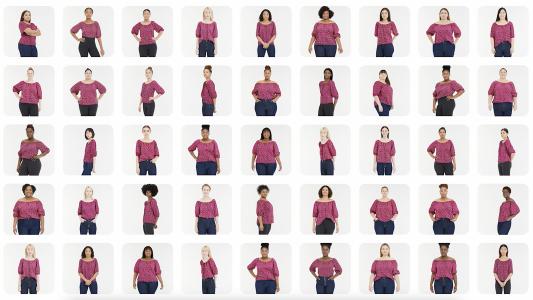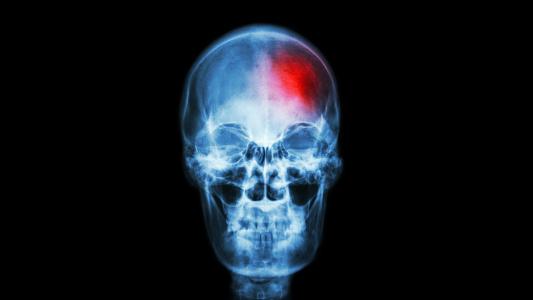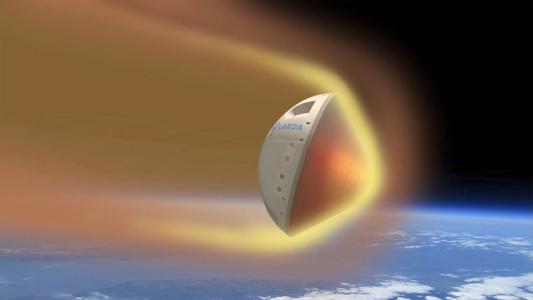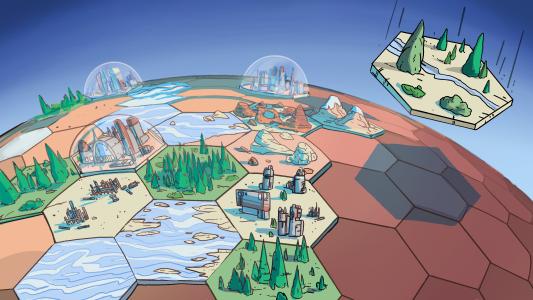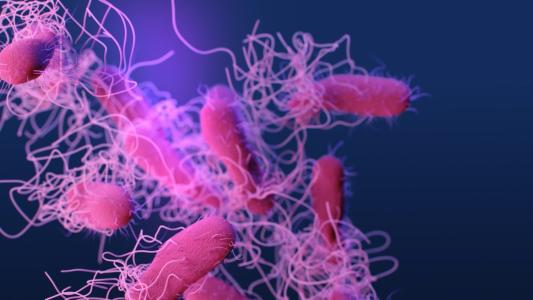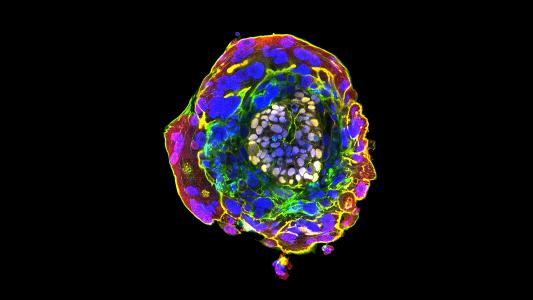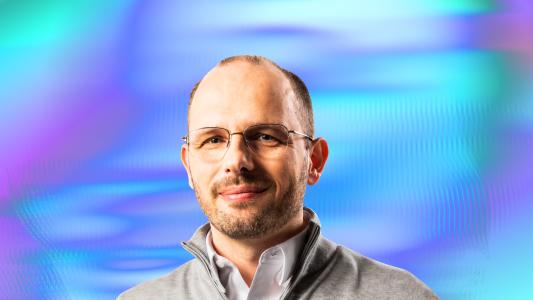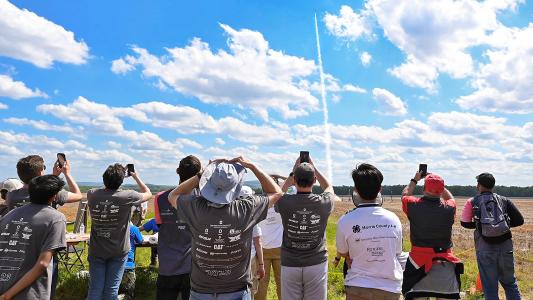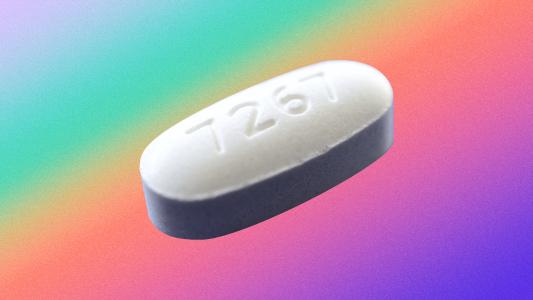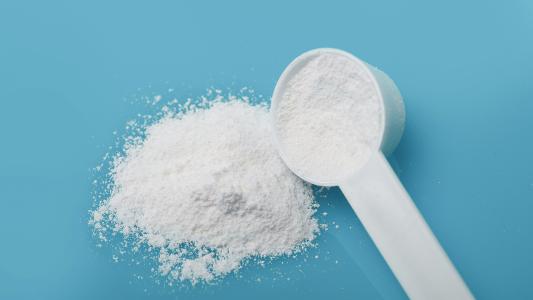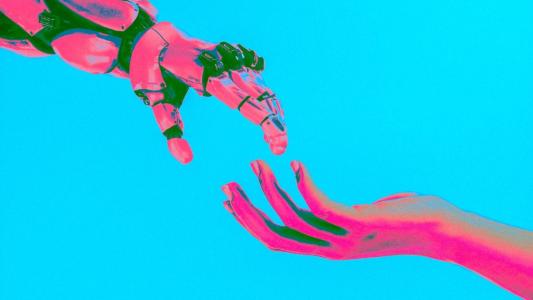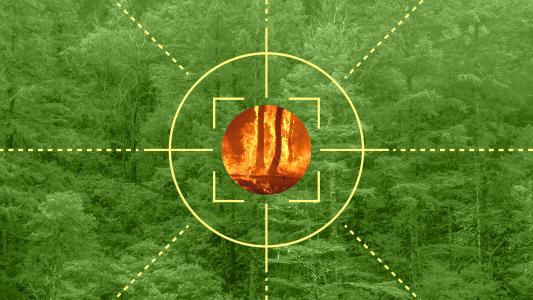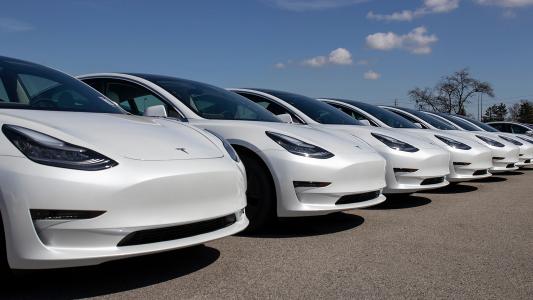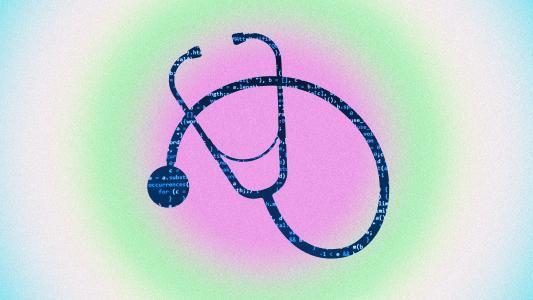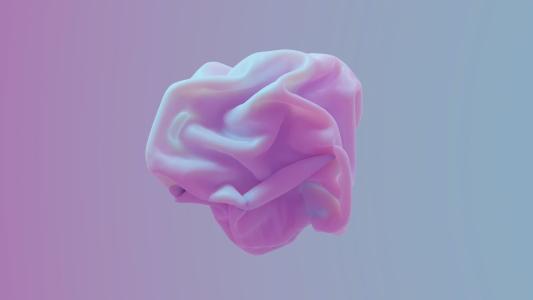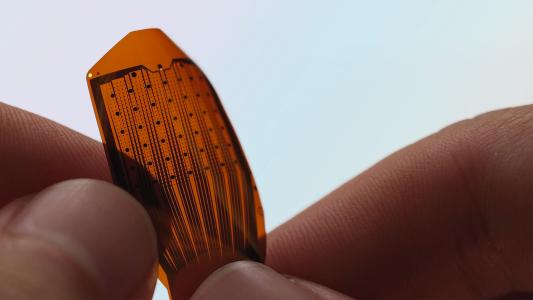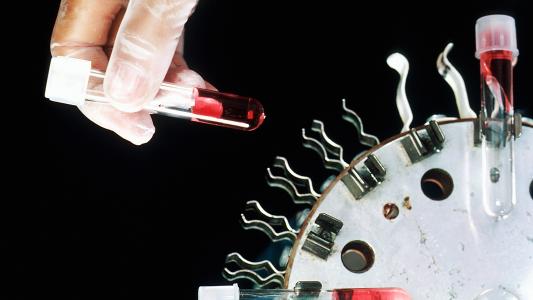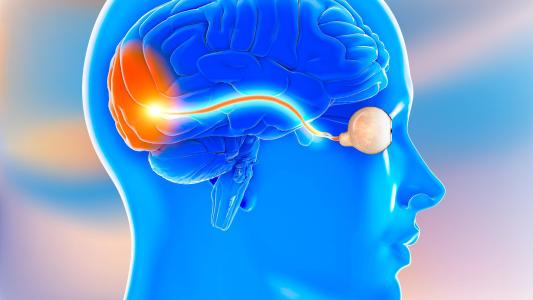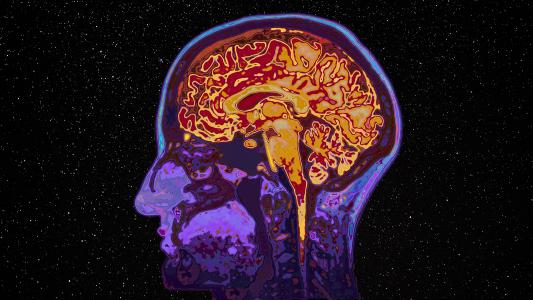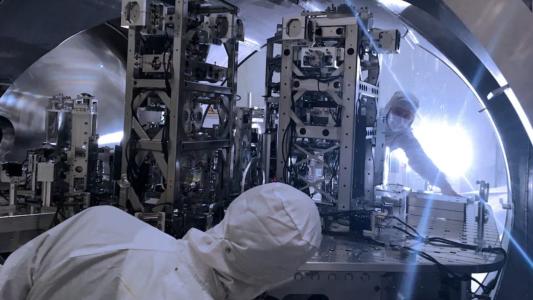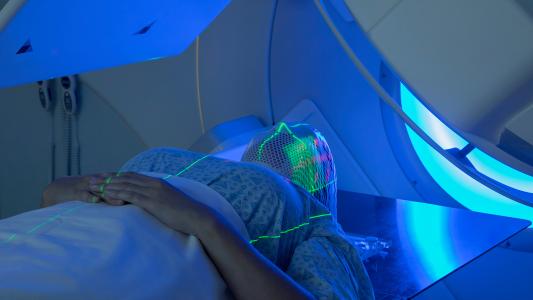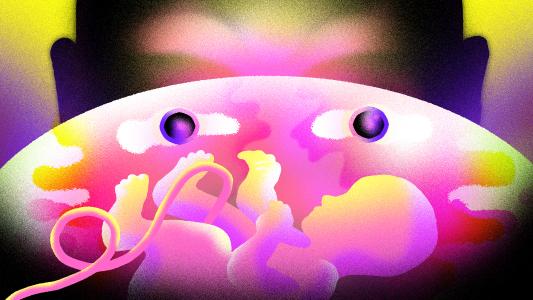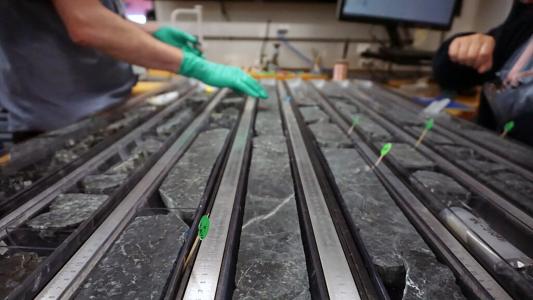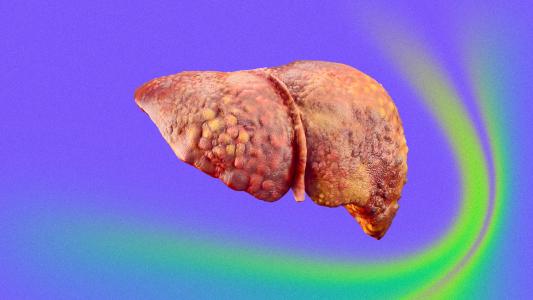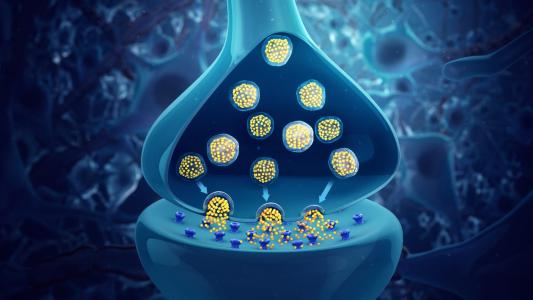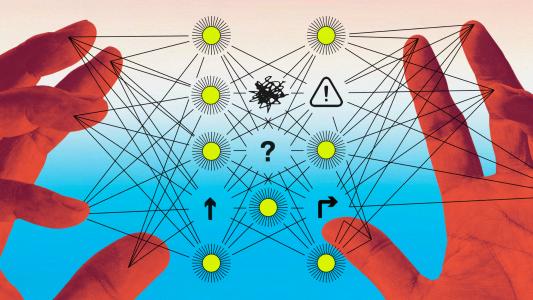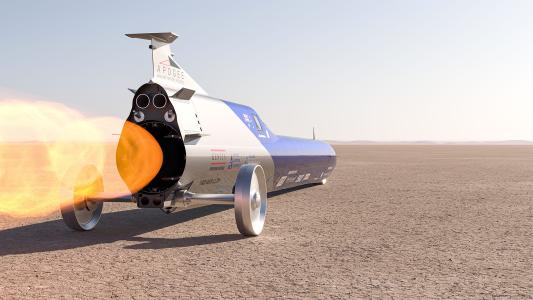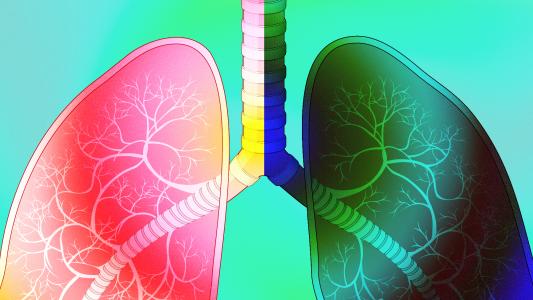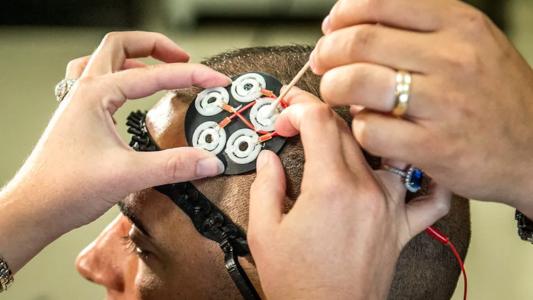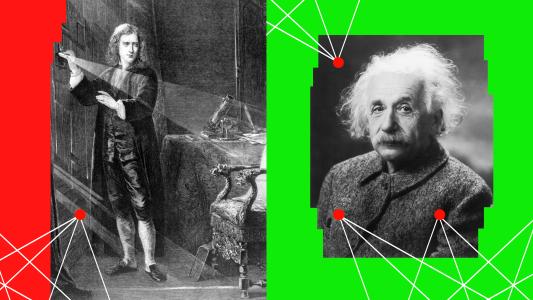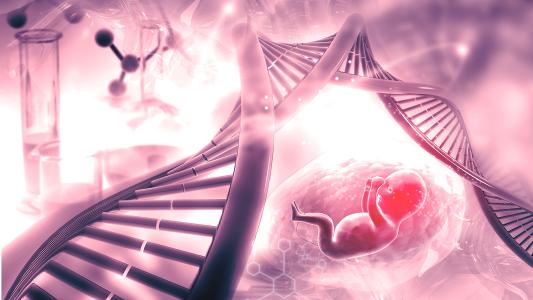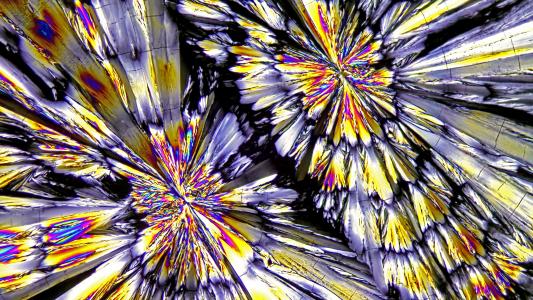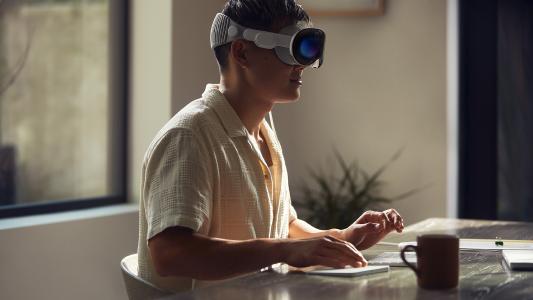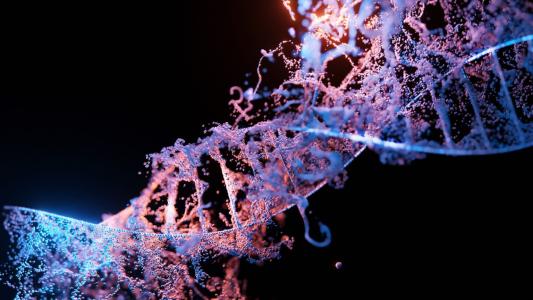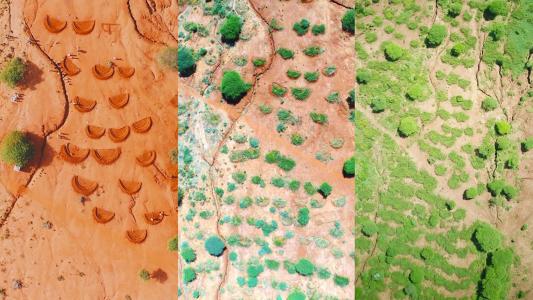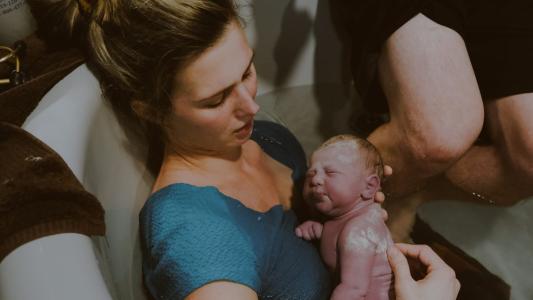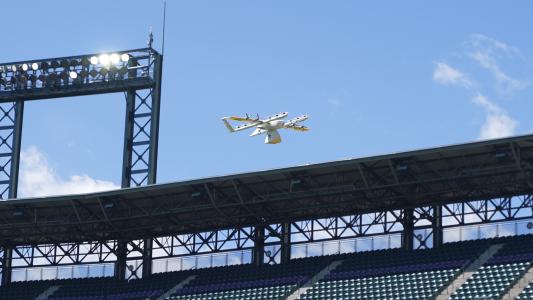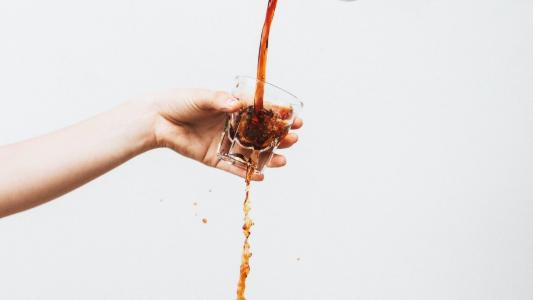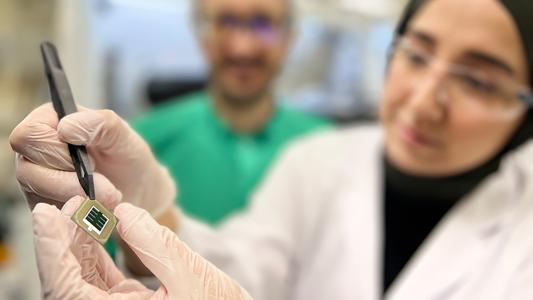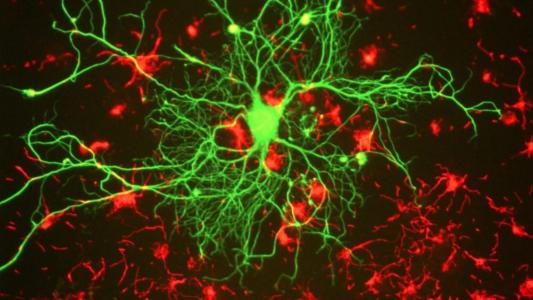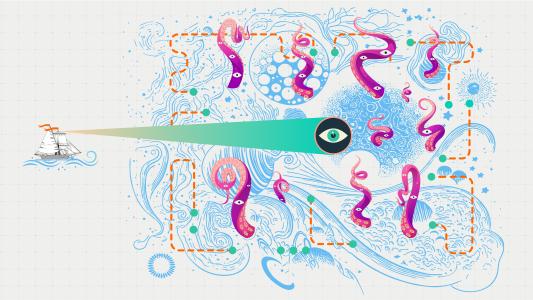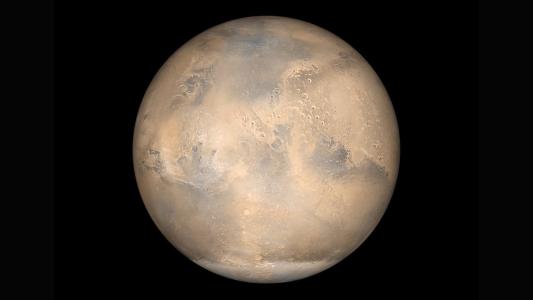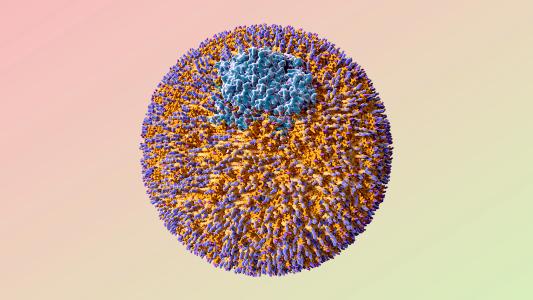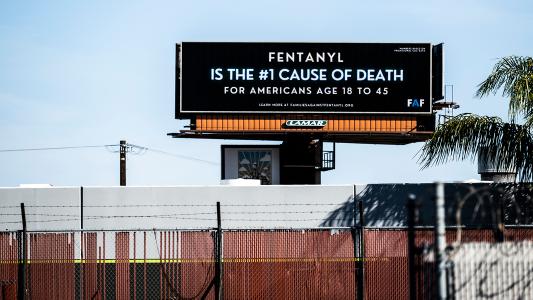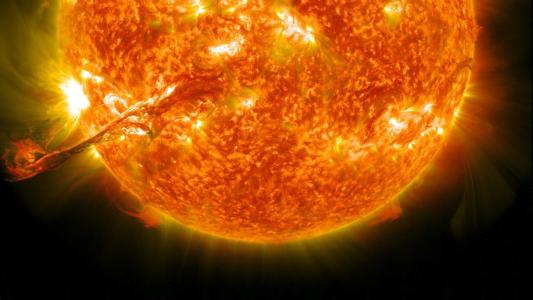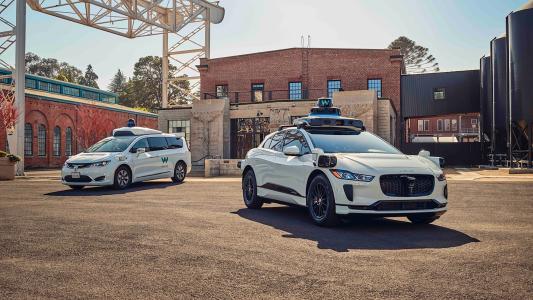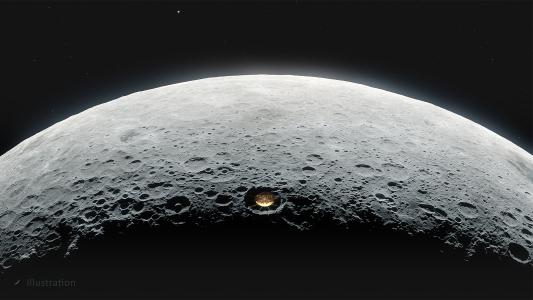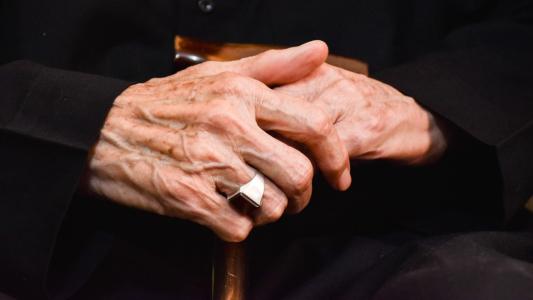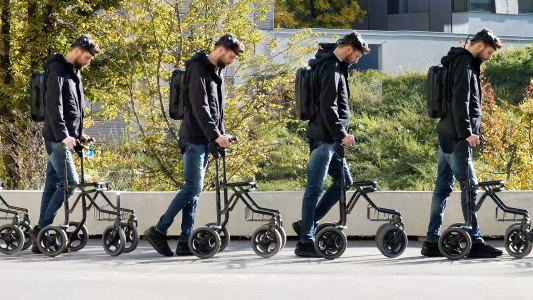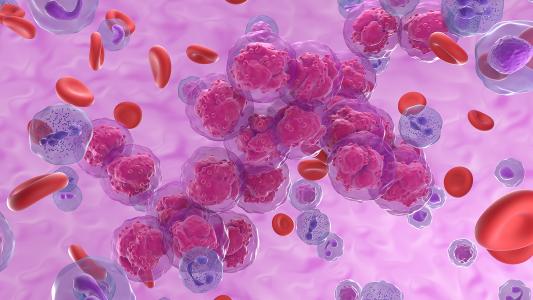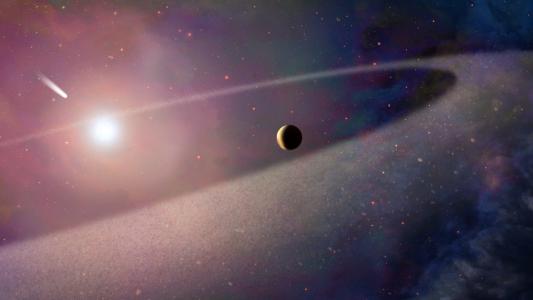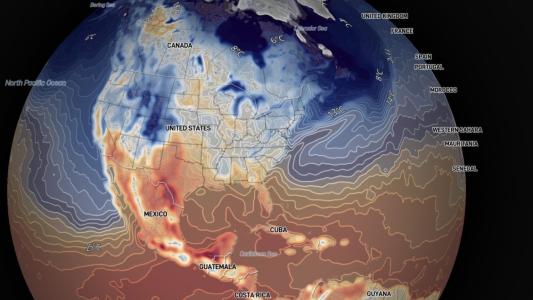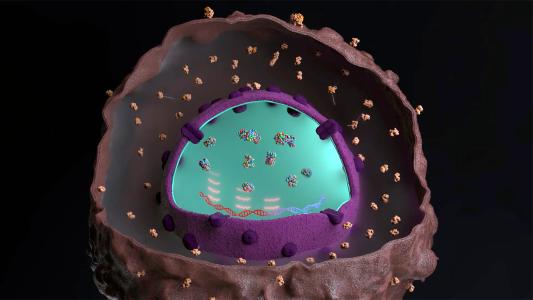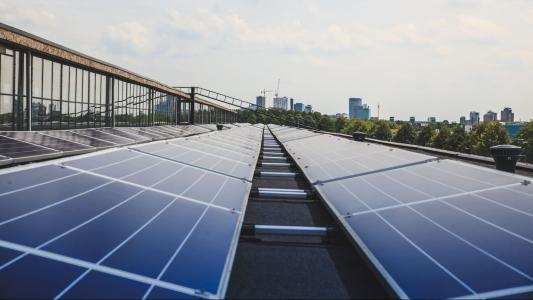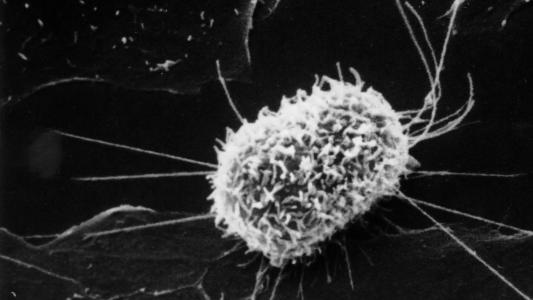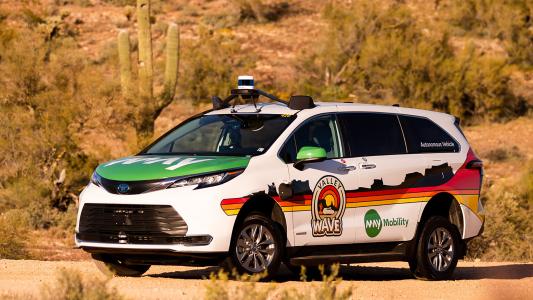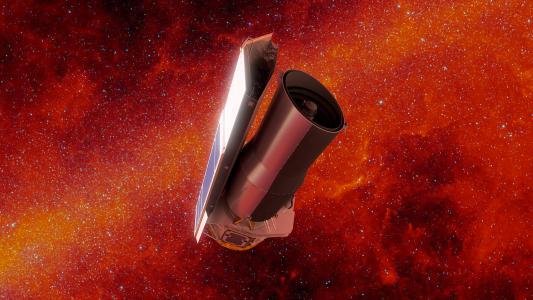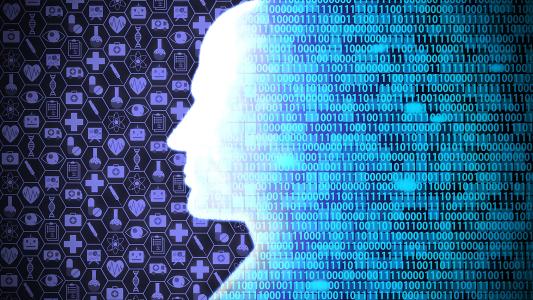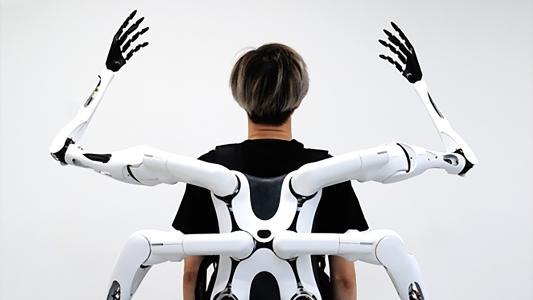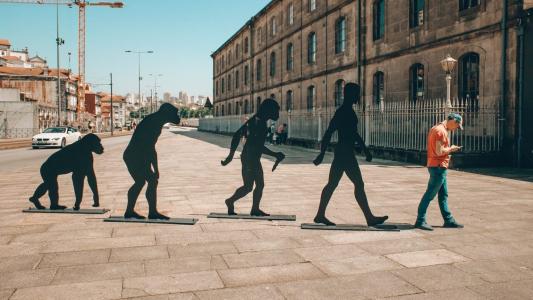Insulin grown in lettuce can be taken orally
New synthetic insulin harvested from lettuce plants can be made cheaply, taken orally, and transported at room temperature.
Tesla Superchargers will soon work with Ford and GM EVs
Ford and GM vehicles will be able to use the 12,000 Superchargers in early 2024, helping potentially set a new charging standard.
Farmers can fight invasive insects with AI and a robotic arm
As the invasive spotted lanternfly threatens to expand its range, Carnegie Mellon researchers are developing a robot to fight back.
NASA shares colorful “postcard” of Mars’ surface
NASA has used photos taken by the Curiosity rover to create a gorgeous “postcard” of the Martian landscape.
Google unveils AI try-on feature for shopping
Google’s AI-powered virtual try-on feature lets shoppers see what an article of clothing would look like on a wide range of models.
Cancer med appears to prevent brain aneurysms
Japanese researchers have discovered that the cancer drug sunitinib can prevent the formation of brain aneurysms in mice.
“Nature’s own Ozempic” or berberine is all over social media
Does berberine work as well as Ozempic to help people lose weight? Social media seems to think so, but it's not likely.
3D-printed “superalloy” could make power plants more efficient
The material is both stronger and lighter than those used to make conventional turbines.
SpaceX successfully launches world’s first “space factory”
SpaceX has successfully deployed a “space factory” developed by startup Varda Space Industries to manufacture drugs in microgravity.
Can “terraforming” turn Mars or the moon into Earth 2.0?
Terraforming — the hypothetical process of making another place “Earth-like” — offers the hope of turning Mars or the moon into Earth 2.0.
How intestinal viruses could help you live to be 100
People who live past age 100 have a greater diversity of bacteriophages (that is, viruses that infect bacteria) in their intestines.
Model human embryo, created from stem cells, survives past two weeks
A model human embryo capable of developing past day 14 could revolutionize our understanding of human development.
GitHub CEO says Copilot will write 80% of code "sooner than later"
GitHub CEO Thomas Dohmke goes in depth to answer questions about how AI-powered development will change the future of innovation itself.
Students build reusable rocket, win $5,000 from NASA
The University of Alabama in Huntsville has won Student Launch 2023, NASA’s annual rocket-building competition.
Cheap drug appears to cut long COVID risk by 41% in small study
The diabetes drug metformin cut COVID-19 patients’ risk of later developing long COVID by 41% in a small study.
Taurine appears to reverse aging in animals. Can it do the same for us?
Animals given taurine lived longer, healthier lives, suggesting that the compound may also increase human longevity.
No, AI probably won’t kill us all – and there’s more to this fear campaign than meets the eye
A dose of scepticism is warranted when considering the AI doomsayer narrative — there are commercial incentives to manufacture fear of AI.
A West Texas lab’s mission to make cryptocurrency mining sustainable
In partnership with Coinbase
Bitcoin mining consumes a massive amount of energy. But, a smarter data center could make the process carbon negative.
AI is riding to the rescue on wildfires
AI-powered systems designed to detect, confirm, and detail wildfires at the earliest possible time may help firefighters tame infernos in the West.
Delta debuts spaces for passengers with wheelchairs
Passengers who use a power wheelchair have a uniquely arduous air travel experience. But a new seat looks to change that.
How years of fighting every wildfire helped fuel the Western megafires of today
The current approach to fire management poses unnecessarily high stakes for forests. Here's why fighting every fire does more harm than good.
Why EV growth in US could be much faster than expected
Consumer preferences and technological trends suggest that most buyers will be ready to choose an EV by 2030.
New “AI doctor” predicts risk of death with 85% accuracy
A new AI was able to make accurate predictions about patients’ risk of death, readmittance, and more by analyzing medical notes.
Have we got the brain all wrong? Study shows its shape is more important than its wiring
Neural activity may be more influenced by the shape of the brain – its grooves, contours, and folds – than by its complex interconnections.
How Fishcoin is using blockchain to combat seafood fraud
In partnership with Coinbase
Are you buying black-market fish? Fishcoin is waging a war against fraud.
Flexible brain implant tested in people for the first time
Startup Precision Neuroscience has tested its flexible, ultra-thin brain implants in people for the first time.
90% of patients respond to new blood cancer treatment in trial
Israeli researchers have developed a new form of CAR-T therapy effective against multiple myeloma, a plasma cell cancer.
Brain scans hint that lonely individuals process the world differently
A study finds that the brains of people who score higher in loneliness react in unique ways when viewing video content.
Visiting space likely won’t cause permanent brain damage, says NASA study
Spending months in space has a major impact on astronauts’ brains, but three years back on Earth appears to reverse the change.
How the world’s most sensitive yardstick reveals secrets of the universe
When two massive objects – like black holes or neutron stars – merge, they warp space and time. Here's the tool that measures the resulting waves.
Made-to-fade tattoo ink keeps cancer therapy from leaving a mark
Henry Ford Health researchers are using temporary tattoo ink to help radiation therapy patients for whom permanent tattoos may not be an option.
Scientists are growing animals in artificial wombs. Humans might be next.
Artificial wombs promise to give people a way to have biological children without putting their own health at risk.
The neurons that make us feel hangry
Researchers gave pinpointed a cluster of cells called AgRP neurons near the underside of the brain that may create “hangry” feelings.
Record-breaking amount of Earth’s mantle drilled out of ocean floor
Scientists aboard the JOIDES Resolution have retrieved “a staggering” amount of mantle rock from below the ocean floor.
New drug for fatty liver disease cuts fat by 65%
A new NASH treatment, efruxifermin, significantly reduced liver fat when combined with a GLP-1 drug in a small trial.
Marc Andreessen: The single greatest risk of NOT pursuing AI
AI has many caught between near utopia and horrifying dystopia. Marc Andreessen sees a better future for all, if we build AI in warp speed.
Why has no one broken the land speed record for 25 years?
Two groups are competing to be the first to create a 1,000-mph car, which would shatter the current land speed record.
Lung cancer drug slashes patients’ risk of death by 51%
Osimertinib, an FDA-approved lung cancer drug, slashes the risk of death for certain patients by 51%, according to new trial results.
Rhythmic brain stimulation could boost cognitive function
An analysis of over 100 studies helps resolve conflicting evidence on the benefits of transcranial alternating current stimulation, or tACS.
To fear AI is to fear Newton and Einstein. There are no “dragons” here.
Who’s afraid of utopia? AI doubters have cold feet. History can warm them.
The placenta may play a role in the genetic risk of schizophrenia
Researchers at Johns Hopkins have found that genes associated with schizophrenia risk may impact the placenta, not just the brain.
Ketamine is as effective as ECT for depression, study shows
A trial of patients with treatment-resistant depression found ketamine to be at least as effective as electroconvulsive therapy.
AI is changing how Americans find jobs, get promoted, and succeed at work
AI-driven software has the potential to advance quickly and change how companies make strategic decisions about their employees.
Apple Vision Pro wasn’t the only major announcement at WWDC23
On Day 1 of WWDC23, Apple announced three new Macs, several new operating systems, and the world’s most powerful personal computer chip.
Apple announces the Vision Pro XR headset
Apple has unveiled the Vision Pro, a VR/AR headset, at their annual WorldWide Developers Conference.
What is an AI black box? A computer scientist explains
AI black boxes refer to AI systems with internal workings that are invisible to us. What are the implications of working without transparency?
Sound waves can trigger torpor-like state in mice and rats
Ultrasound stimulation triggers a torpor-like state in animals, suggesting a noninvasive way to put people into the state.
New NASA video shows just how big black holes really are
A new NASA animation puts the size of 10 supermassive black holes into perspective by comparing them to our solar system.
Man receives donor lung through tiny 3-inch incision
The first fully robotic lung transplant was completed in Spain by surgeons using a robot and a brand-new access point.
Shape-shifting space robots help firefighters on Earth
The designer of a new type of rover for NASA has found a way to make her space robots useful to firefighters on Earth.
Gain-of-function research is more than just tweaking risky viruses
Gain-of-function experiments in the lab can help researchers get ahead of viruses naturally gaining the ability to infect people in the wild.
The radical drop in maternal mortality was a public health miracle
In 1758 in Sweden, 1205 mothers died for every 100,000 live births, which was likely representative of the global maternal mortality rate.
Watch this autonomous drone deliver beer and peanuts in a baseball stadium
Guests at the opening of an autonomous systems conference witnessed a drone delivery at Denver's Coors Field.
Nope, coffee won’t give you extra energy
You might feel like coffee gives you the energy to get through the day – but chances are, you're not getting as much as you think.
NASA spots an enormous water plume erupting on Saturn’s ocean moon
Using the James Webb Space Telescope, researchers are gaining new insights into Enceladus, which holds a sea beneath its icy surface.
New “tandem” solar cell breaks world record
A new tandem solar cell containing layers of silicon and perovskite has demonstrated an unprecedented efficiency of 33.7%.
Zapping the brain during sleep helps memories form
Brain stimulation during sleep appears to help with memory consolidation, suggesting a new way to treat people with memory disorders.
Ancient technology that was centuries ahead of its time
These forward-thinking inventions are often called "ahead of their time." They are reflections of the ingenuity of their civilizations.
If we’re going to label AI an “extinction risk,” we need to clarify how it could happen
AI comes with risks that we need to take seriously, but none of the claims that it is going to cause the extinction of humanity explain how.
Adult-made neurons mature longer, have unique functions
Neuroscientists don't know the degree to which adult brains generate new neurons, but adult-made neurons appear to have more "mature" functions.
Stocks demystified
In partnership with Million Stories
Here’s how younger generations can work the markets (and avoid the hype).
4 dangers of artificial intelligence—and why they won’t end the world
AI doomsday fears are vague. This framework for the future of AI offers concrete solutions.
How to terraform Mars, without nukes, on a budget
Terraforming Mars has been a dream for decades; here’s how we might get it started today.
The first 10 minutes of sleep can unlock your creative potential
According to prior research, the first ten minutes of sleep, called N1, can provide a creative boost when it comes to solving problems.
CRISPR tool slashes bad cholesterol by 56% in monkeys
Tune Therapeutics has successfully lowered the cholesterol levels of monkeys using a version of CRISPR that doesn’t permanently alter DNA.
Watch: Autonomous helicopter takes flight at sea
Airbus' VSR700, an autonomous helicopter designed for naval use, has successfully completed test flights at sea.
Chronic pain can be objectively measured using brain signals
Even though pain is universal and we know it happens in the brain, we've never before had a way to objectively measure its intensity.
AI is already making “functional music” for major label artists
UMG has teamed up with an AI startup to turn its artists’ music into “soundscapes” designed to help listeners sleep, focus, and more.
New nasal spray aimed at reversing fentanyl overdoses is now approved
A new overdose-reversing spray that works fast but lasts longer has been approved by the FDA, and will be available by the fall at earliest.
Understanding just how big solar flares can get
Recasting the iconic Carrington Event as just one of many superstorms in Earth’s past, scientists reveal the potential for even more massive eruptions.
Fully self-driving cars are finally available on Uber
Uber has teamed up with robotaxi operator Waymo to make rides in fully autonomous cars available to its customers.
A massive moon telescope could solve the mystery of the “Cosmic Dark Ages”
NASA hopes a massive radio telescope on the moon will be able to reveal what was happening during the mysterious “Cosmic Dark Ages."
Do we finally know what causes Alzheimer’s?
The first treatments proven to slow cognitive decline in Alzheimer’s are helping settle a decades-long debate about how the disease starts.
Here’s how growing plants on the Moon could benefit Earth
Making plants grow on the Moon could be instrumental in helping gardens to grow greener on Earth in the face of climate change.
Paralyzed man walks again using only his thoughts
A man with paralyzed legs is walking again thanks to a “digital bridge” between his brain and a spinal stimulator.
This “bridge” between chemo and cancer solves a big problem for treatment
To improve leukemia treatment, Australian researchers have created a bispecific antibody that connects chemo drugs to cancer cells.
Stanford study finds AI improves the performance of teachers and students
Stanford researchers have developed an AI that can provide useful feedback to teachers, helping them to increase student uptake.
For the first time, astronomers have detected a radio signal from the massive explosion of a dying white dwarf
Patience and persistence pays off in ways researchers never expected, allowing them to hear the dying whispers of a distant star.
This new watch-like wearable measures blood pressure 24/7
A Swiss company has developed a lightweight, comfortable bracelet which can provide constant and accurate information about blood pressure.
Pill version of obesity drug reduced weight almost 13% in new trial
Novo Nordisk has announced positive results for an oral version of the popular weight loss drug sold as Ozempic and Wegovy.
AI is going to revolutionize the weather forecast
A tech startup in San Francisco is going to change how the world sees the weather.
Cancer treatment is about to get a reboot, thanks to AI
Techniques borrowed from astrophysics are helping to advance personalized cancer treatments beyond what genetics can tell us.
These 4 charts show the unstoppable growth of solar
Solar is growing fast enough to displace fossil fuels from the entire global economy before 2050, but infrastructure needs to keep up.
Watch the world’s largest plane drop a hypersonic aircraft
Aerospace company Stratolaunch has dropped a hypersonic aircraft from its record-breaking Roc launch platform for the first time.
“Please do not assume the worst”: Students want colleges to teach them how to use AI the right way
Students want to work with their communities, universities, and governments to figure out how to engage productively and responsibly with AI.
Buying a home in today’s economy is expensive – but not impossible
In partnership with Million Stories
Most people use a mortgage loan to buy their first home. Before you can borrow money, though, you’ll have to prove that you can pay it back.
CRISPR uncovers possible antidote for death cap mushroom poisoning
Researchers have figured out how the mushroom's main toxin enters human cells — and maybe how to stop it.
Graphene is a Nobel Prize-winning “wonder material.” Graphyne might replace it.
A two-dimensional material made entirely of carbon called graphene won the Nobel Prize in 2010. Graphyne might be even better.
New kind of chicken lays eggs that don’t have allergy protein
Newly created gene-edited hens lay eggs without ovomucoid, the protein most likely to trigger an egg allergy.
Did life evolve more than once? Researchers are closing in on an answer
Current scientific consensus is that life emerged from non-living molecules in a process called abiogenesis. But if life emerged once, why not more times?
Astronomers find Earth-sized planet covered in volcanoes
An Earth-sized exoplanet 90 light years away may be covered in active volcanoes — and home to extraterrestrial life.
Depression treatment reverses “backwards” brain signals
Transcranial magnetic stimulation (TMS) appears to relieve depression by correcting brain signals that are traveling the wrong direction.
Older people were 3x stronger at the end of this science-backed 8-week program
But what if you’re in your 60s, 70s, 80s or 90s? Is it “too late” to build muscle and fight sarcopenia? Here’s what the research says.
Autonomous public transportation rolls out in Arizona
Sun City, Arizona has launched a free transit system featuring self-driving cars for its retirement-age residents.
NASA’s last “Great Observatory” could be coming out of retirement
A startup’s audacious plan to revive NASA’s retired Spitzer Space Telescope just secured a $250,000 Space Force contract.
The AI healthcare revolution has begun
The ability of AI to diagnose diseases, discover drugs, and even perform surgery is increasing rapidly — but will patients accept Dr. AI?
This robotic arm study is preparing us for our cyborg future
A new study at the University of Tokyo aims to find out how people feel using robotic arms — and sharing them with others.
We’re analysing DNA from ancient and modern humans to create a “family tree of everyone”
Genetic genealogy not only helps us understand where we came from, but it could also be used for tracing the origin of genetic mutations.
